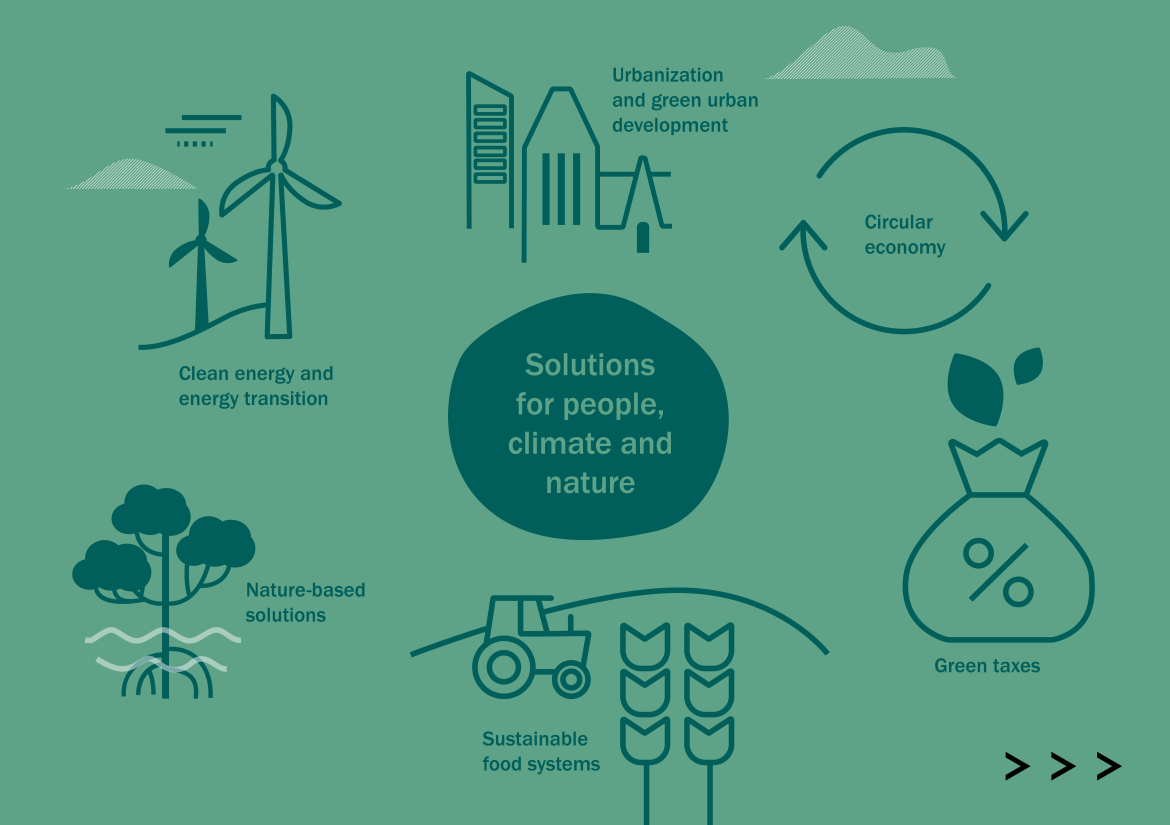
Reducing emissions - Solutions for People, Climate and Nature
Until today, economic development globally has happened at the detriment of both nature and climate. No countries have been able to ensure their citizens a high level of human development without exceeding the planetary boundaries.
This month Norad published the report "The Contributions of Development Assistance in Reducing Emissions – Solutions for People, Climate and Nature". The report investigates how Norwegian aid may contribute to reducing emissions while fighting poverty at the same time.
However, there are some real trade-offs between these concerns. These tradeoffs are often visible in debates about renewable energy and its impact on nature, or connected to discussions about economic development which threatens rainforests or other valuable natural environments.
More of what we do well
The report describes areas where there are potential solutions which can benefit people, climate and nature. Three areas where Norway already has a strong tradition, are identified as:
Clean Energy and the Energy Transition: Norwegian development cooperation can do more to incentivize investments in renewable energy in developing countries. This may be through absorbing risk with instruments with a proven history of being effective.
Solutions: Norad suggests an expanded guarantee scheme for renewable energy, and an upscaling and modernization of Norad’s existing grant scheme for support to the private sector.
Nature-Based Solutions: Protecting nature plays a fundamental role in storing carbon, protecting against extreme weather events, and contributing to climate adaptation. Indigenous people play a central role in the sustainable management of their lands. Their roles should be further enhanced as part of Norwegian development cooperation.
Solutions: Norad suggests prioritizing indigenous people and innovative financing of nature- and ocean-based solutions.
Sustainable Food Systems: Climate smart food production, reduced food waste and better management of the resources from both oceans and land are examples of other areas that should be further lifted as part of Norwegian development cooperation.
Solutions: Climate- smart food production, reduces food waste and sustainable land use management.
New areas towards 2030
In addition to these, three areas where Norway has less experience but should consider exploring further are highlighted. These are cross-cutting and cross-sectoral, but we believe there are opportunities to create concrete initiatives within each of them.
Green Taxes: Green taxes can contribute to cost efficient climate solutions, where there is a political will to introduce them. Norwegian development assistance may contribute in establishing such systems in a just and efficient way. We have established partnerships to build upon in this area.
Circular Economy: Norwegian development assistance can help support circular business models, as well as the transition towards a more circular economy. As a donor country, Norway can also help to ensure that technological solutions are available to all so that it mat be used in new and innovative ways.
Urbanization and Green Urban Development: The world’s population is increasingly living in cities, and much of the green transition will take place in cities. Cities will be a central arena to both climate change adaptation, mitigation and poverty reduction toward 2030. Norwegian development cooperation should factor this dimension into existing programs, while also considering more efforts specifically in green urban development.
Re-Thinking Development
The report "The Contributions of Development Assistance in Reducing Emissions – Solutions for People, Climate and Nature" is a part of Norad’s Rethinking Development project, which seeks to strengthen the knowledge base for development cooperation for the future.
The report is based on literature reviews and input from international experts, specialist groups in Norway, as well as from Norad’s various departments. A reference group was setup and was consulted throughout the report production process, it consisted of experts from academia, research institutions, as well as experts with relevant field experience within development cooperation and multilateral organizations.
The report asks three key questions:
- Firstly: How are we to understand and fight the climate and nature crises within development aid’s mandate of reducing poverty?
- Secondly: What do we know about the effects different aid interventions have had on reducing emissions?
- Thirdly: What are relevant areas to prioritize towards 2030 in the context of low carbon development?
The six areas mentioned above are meant to serve as a starting point for a discussion on how we should deal with the climate and nature emergencies within development cooperation, and how we may help deliver on both the Sustainable development Goals and the Paris Agreement in the years ahead.
- Download the report in Norwegian: Bistandens bidrag til å redusere klimagassutslipp - løsninger for mennesker, klima og miljø
